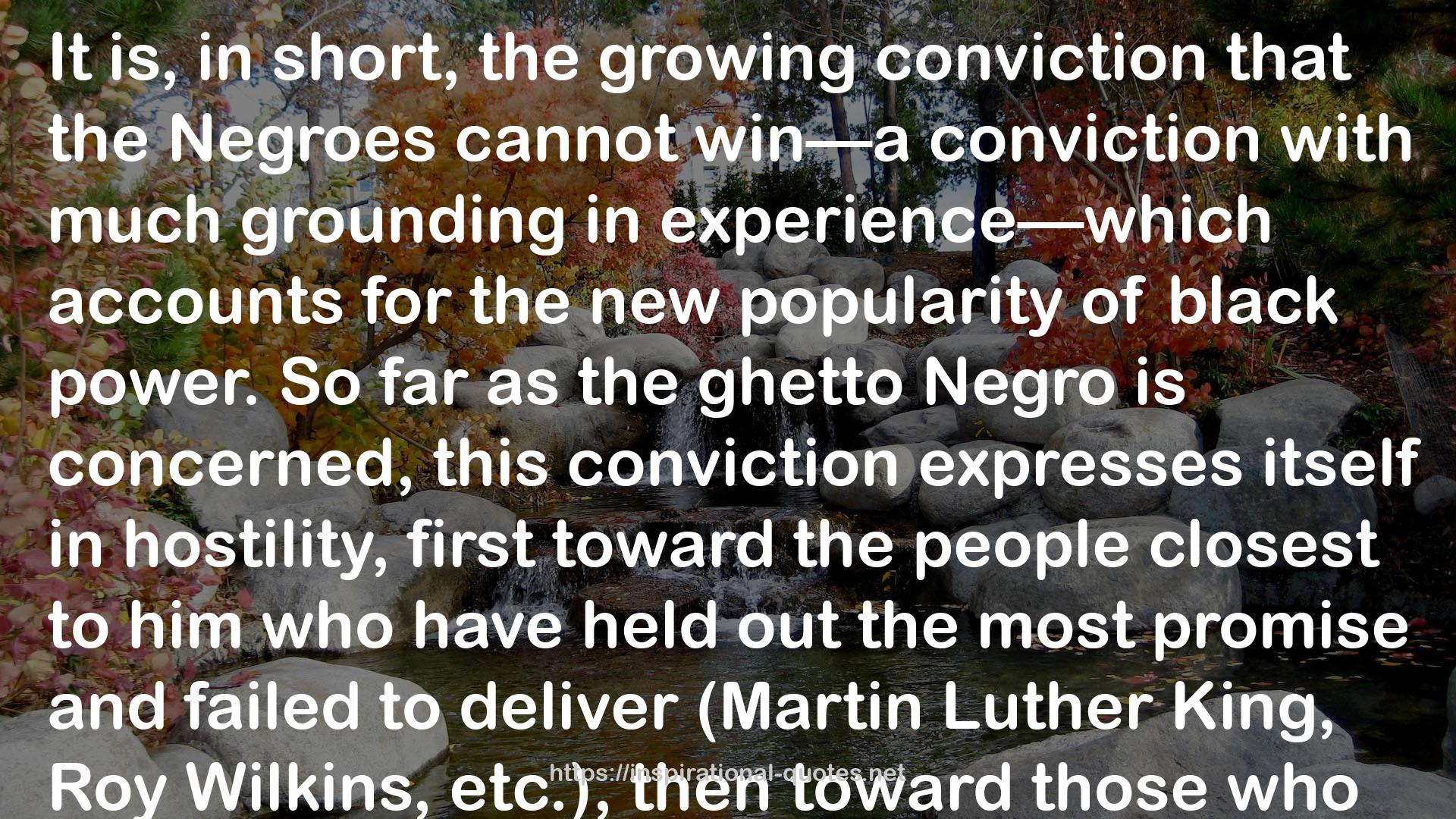" It is, in short, the growing conviction that the Negroes cannot win—a conviction with much grounding in experience—which accounts for the new popularity of black power. So far as the ghetto Negro is concerned, this conviction expresses itself in hostility, first toward the people closest to him who have held out the most promise and failed to deliver (Martin Luther King, Roy Wilkins, etc.), then toward those who have proclaimed themselves his friends (the liberals and the labor movement), and finally toward the only oppressors he can see (the local storekeeper and the policeman on the corner). On the leadership level, the conviction that the Negroes cannot win takes other forms, principally the adoption of what I have called a "no-win" policy. Why bother with programs when their enactment results only in sham? Why concern ourselves with the image of the movement when nothing significant has been gained for all the sacrifices made by SNCC and CORE? Why compromise with reluctant white allies when nothing of consequence can be achieved anyway? Why indeed have anything to do with whites at all?
On this last point, it is extremely important for white liberals to understand what, one gathers from their references to "racism in reverse," the President and the Vice-President of the United States do not: that there is all the difference in the world between saying, "If you don't want me, I don't want you" (which is what some proponents of black power have in effect been saying), and the statement, "Whatever you do, I don't want you" (which is what racism declares). It is, in other words, both absurd and immoral to equate the despairing response of the victim with the contemptuous assertion of the oppressor. It would, moreover, be tragic if white liberals allowed verbal hostility on the part of Negroes to drive them out of the movement or to curtail their support for civil rights. The issue was injustice before black power became popular, and the issue is still injustice. "
Image for Quotes

On this last point, it is extremely important for white liberals to understand what, one gathers from their references to "racism in reverse," the President and the Vice-President of the United States do not: that there is all the difference in the world between saying, "If you don't want me, I don't want you" (which is what some proponents of black power have in effect been saying), and the statement, "Whatever you do, I don't want you" (which is what racism declares). It is, in other words, both absurd and immoral to equate the despairing response of the victim with the contemptuous assertion of the oppressor. It would, moreover, be tragic if white liberals allowed verbal hostility on the part of Negroes to drive them out of the movement or to curtail their support for civil rights. The issue was injustice before black power became popular, and the issue is still injustice." style="width:100%;margin:20px 0;"/>